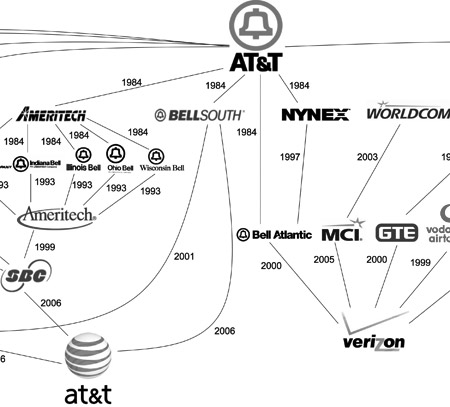The Regulatory Inefficiency Theorem
by Mr JugglesWhen the Justice Dept won its antitrust case against AT&T, the company was split into multiple local operating companies. AT&T focused on the long distance market. Now, those companies have recombined to the point where only three remain: Verizon, AT&T, and Qwest. Essentially, the old AT&T has been reformed in three geographic regions. Why is this? Because of the Regulatory Inefficiency Theorem.
The Regulatory Inefficiency Theorem states that any move by a regulator will thereafter be reversed by the market. The time to reversal will vary inversely with the amount of regulatory oversight implemented whereas the lobbying dollars spent will vary directly.
In the case of telecom — an industry with large returns to scale — there is more regulatory oversight than almost any other industry. And, as our RIT model predicts, we observe a near complete reversal of the regulator’s actions over time combined with immense lobbying efforts. In fact, according the Post, the telecom industry spends more on lobbying “than the tobacco, aerospace and gambling lobbies combined.”

Source Freepress.net
- Zimbambwenomics and Mugabe Efficiency Theory
- Mr Juggles' Investing Commandments 5a and 5b
- Mr Juggles Investing Commandments (#3 & #4)
- The Time Barron's Investing Thesis
- The Down Low on Low Cut: Cleavage Hypothesis
- Investing in Public Equities is Like Dating
- Number Theory
look at banking – deposit caps, federal oversight at almost every level … HOW many years did it take to get glass-steagal reversed?
The business of government is to govern – and they don’t even do that very well. Under this logic, the last thing the gov’t should be doing is trying to tell firms how to run their business.
Laissez Faire (sp?) 4lyfe